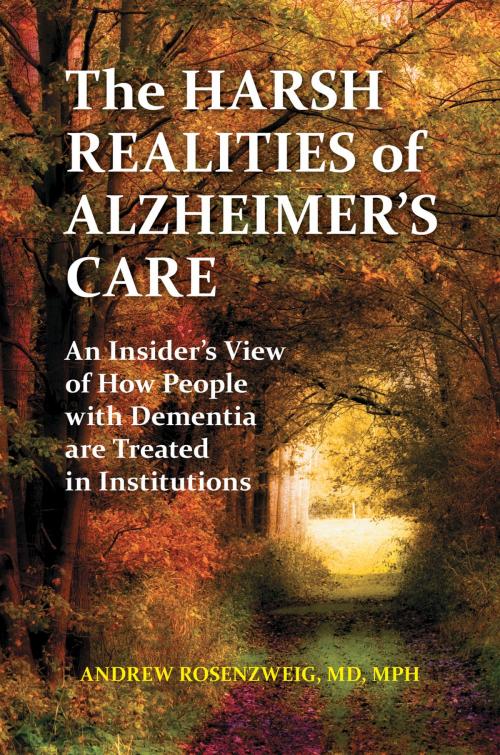The Harsh Realities of Alzheimer's Care: An Insider's View of How People with Dementia are Treated in Institutions
Nonfiction, Health & Well Being, Psychology| Author: | Andrew Seth Rosenzweig MD | ISBN: | 9780313398919 |
| Publisher: | ABC-CLIO | Publication: | July 6, 2012 |
| Imprint: | Language: | English |
| Author: | Andrew Seth Rosenzweig MD |
| ISBN: | 9780313398919 |
| Publisher: | ABC-CLIO |
| Publication: | July 6, 2012 |
| Imprint: | |
| Language: | English |
The Harsh Realities of Alzheimer's Care: An Insider's View of How People with Dementia Are Treated in Institutions is the first book of its kind. Written by an eminent geriatric psychiatrist who has worked with dementia patients in more than 70 facilities, the book distills all he has learned about dementia care, for better and, more often, for worse.
Both a shocking exposé and a practical guide, the book takes readers into nursing homes, assisted living facilities, and hospitals. It reveals the inadequacies and dangers of these institutions, detailing issues that result in poor care including federal standards for minimum staff training that are, in some cases, lower than those established for dog groomers. The author cites improvements that must be made in emergency rooms and inpatient psychiatric facilities treating victims of dementia, and he documents the downside of memory clinics.
But there are steps caregivers can take to protect their loved ones—and themselves. Each chapter concludes with "reality lessons" that offer practical, affordable strategies for coping with dementia's many challenges.
The Harsh Realities of Alzheimer's Care: An Insider's View of How People with Dementia Are Treated in Institutions is the first book of its kind. Written by an eminent geriatric psychiatrist who has worked with dementia patients in more than 70 facilities, the book distills all he has learned about dementia care, for better and, more often, for worse.
Both a shocking exposé and a practical guide, the book takes readers into nursing homes, assisted living facilities, and hospitals. It reveals the inadequacies and dangers of these institutions, detailing issues that result in poor care including federal standards for minimum staff training that are, in some cases, lower than those established for dog groomers. The author cites improvements that must be made in emergency rooms and inpatient psychiatric facilities treating victims of dementia, and he documents the downside of memory clinics.
But there are steps caregivers can take to protect their loved ones—and themselves. Each chapter concludes with "reality lessons" that offer practical, affordable strategies for coping with dementia's many challenges.


![Cover of the book All Things Dickinson: An Encyclopedia of Emily Dickinson's World [2 volumes] by Andrew Seth Rosenzweig MD](https://www.kuoky.com/images/2014/january/300x300/9781440803321-JegP_300x.jpg)
![Cover of the book The Cold War: Interpreting Conflict through Primary Documents [2 volumes] by Andrew Seth Rosenzweig MD](https://www.kuoky.com/images/2018/december/300x300/9781440852121-yREt_300x.jpg)
![Cover of the book Global HIV/AIDS Politics, Policy, and Activism: Persistent Challenges and Emerging Issues [3 volumes] by Andrew Seth Rosenzweig MD](https://www.kuoky.com/images/2013/october/300x300/9780313399466-5ja6_300x.jpg)





![Cover of the book Controversies in Affirmative Action [3 volumes] by Andrew Seth Rosenzweig MD](https://www.kuoky.com/images/2014/july/300x300/9781440800832-oa5v_300x.jpg)
![Cover of the book Immigrants in American History: Arrival, Adaptation, and Integration [4 volumes] by Andrew Seth Rosenzweig MD](https://www.kuoky.com/images/2013/january/300x300/9781598842203-AJ3Y_300x.jpg)



